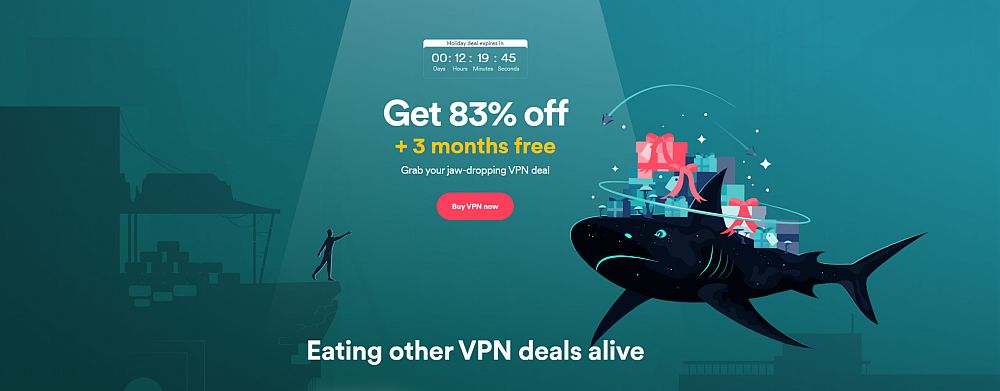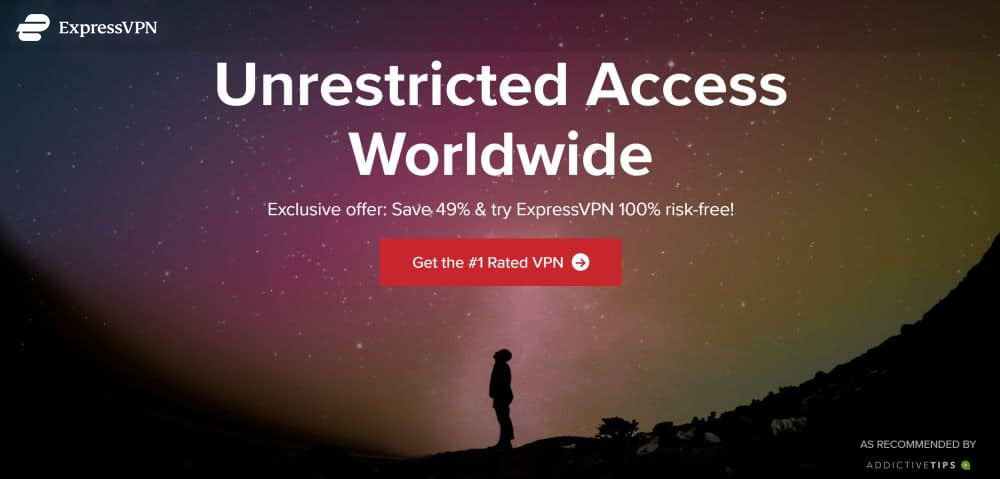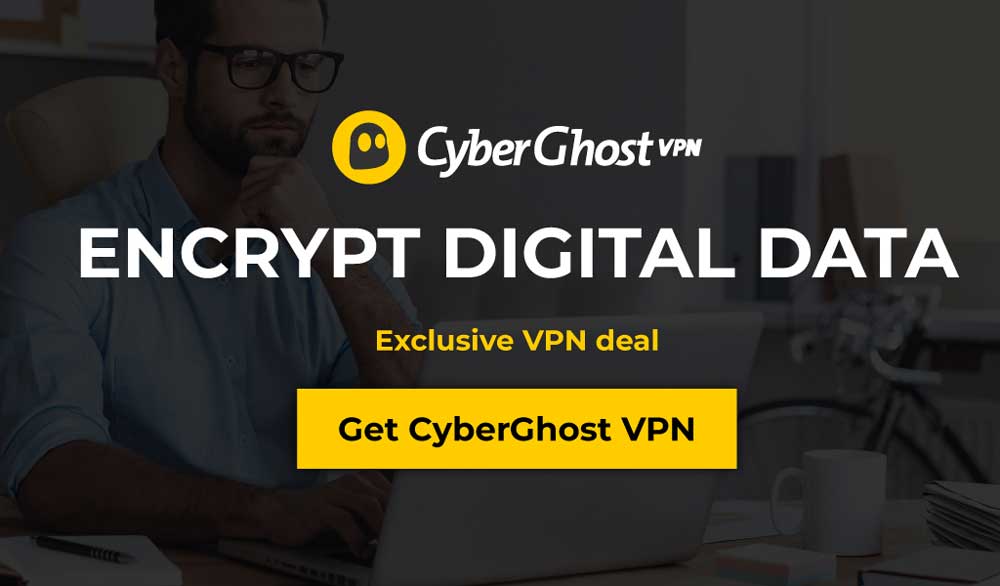Best Chrome VPN Extensions Reviewed for 2025
Chrome is the most popular in the world, and thus has a ton of VPN extensions available. However, only a few of these VPNs are worth your time, as the rest lack the robust encryption and spoofing ability. Today, we review the top VPN Chrome extensions that allow you to browse in complete privacy.
A VPN is undeniably the best way to safeguard your online privacy. By encrypting all data in and out of your computer, it keeps it shielded from the prying eyes of all sorts of ill-intentioned individuals and organizations. And having an extension built right into your Chrome browser makes using a VPN a simple, unintrusive task. Today, we’re reviewing the best VPN extensions for Chrome. We’ve searched the web–and the Chrome store–for Extensions that are easy to use and offer a great level of security and privacy.
Short on time? Here’s a quick list of our favorite VPN Chrome extensions:
- NordVPN – Best for Chrome – NordVPN’s Chrome extension is one of the best on the market, offering unlimited access to their absurdly large server network and powerful encryption.
- Surfshark – Outstanding value for money, rapidly expanding server network, fully loaded VPN extension.
- ExpressVPN – Blazing fast network speeds, numerous failsafes, and privacy-friendly jurisdiction.
- CyberGhost – Standalone VPN extension with an intuitive interface.
- DotVPN – A decent free VPN we can recommend with some caveats.
We’ll begin our discussion with some background information on Virtual Private Networks, what they are and how they work. Then, we will discuss what benefits they bring and why you would use a VPN extension on Chrome. Once we’re all on the same page, we’ll proceed to reveal the five best VPN extensions for Chrome. We’ll discuss their characteristics, their pros and cons–if any.
Most Secure VPN Browser Extensions for Chrome
We’ve searched the web–and the Chrome Web Store– for the best VPN extensions. three of them are from some of the best commercial VPN providers out there and two are free services. Some are true VPN extensions while others are only in-browser front-ends to the stand-alone client. In any case, these VPN Chrome Extensions will keep you safe and secure while browsing online:
1. NordVPN

NordVPN is overall the best provider in the business. The Chrome extension requires that you subscribe to the service and will simply give you an easy way to connect and disconnect the VPN tunnel. The comparison stops there as this is a true VPN extension that doesn’t require you to install the stand-alone client. NordVPN has a strict no-logging policy along with OpenVPN traffic encryption using 256-bit AES encryption and 2,048-bit DH keys. The service also has DNS leak protection enabled by default, a feature some providers don’t even have.
A NordVPN subscription lets you use their service from six devices, one of the highest number of simultaneous connections allowed. This can be handy if you want to protect several devices. Furthermore, NordVPN has 5,500 servers across 59 countries worldwide.
Read our full NordVPN review.
- Very affordable plans
- Extensive server park of over 5,400 different servers
- Allows multiple connections (6 devices)
- Based in Panama
- Live Chat Support.
- Not much
- Apps can be a bit cumbersome to use.
2. Surfshark

Surfshark is a relatively new VPN that nevertheless comes loaded with attractive cybersecurity features. And unlike most providers, Surfshark’s entire kit is available through their fully fleshed-out Chrome extension.
Truth be told, there are quite a few things that separate Surfshark from other providers. For one, their entire network (3200+ servers in 65 countries) is based on RAM-only infrastructure, offering enhanced performance while making it impossible for them to log your usage metadata. Additionally, no matter which node you choose, you only get top-shelf 256-AES-GCM encryption–the same used by the NSA.
Additionally, Surfshark’s Chrome extension offers CleanWeb protections, which intercept and block malware links, obnoxious ads and pop-ups, and tracking software before it even has a chance to load. Surfshark even protects you from itself, winning special praise for its logging policy by independent auditor Cure53.
- Unblock VoIP in oppressive regimes like WhatsApp, Skype, Discord, and more
- Unblock Netflix on any server, no more picking and choosing
- 30-day satisfaction guarantee
- Zero logging policy ensures your activity can't be used against you
- Get help any time of day via email, phone, or live chat.
- Overall, not much to complain about
- Power users may wish for more settings to fiddle with.
Read our full Surfshark review.
3. ExpressVPN

Our first entry, the ExpressVPN extension is one of these front-ends we were just mentioning. It installs into Chrome and allows you to control the ExpressVPN stand-alone client. You will, therefore, need to download and install the ExpressVPN client first, before you can install and use the extension.
This also means that you need to subscribe to the ExpressVPN service. It is well worth it, though, as this is one of the very best VPN providers on the market. ExpressVPN uses the OpenVPN protocol with 256-bit AES encryption and perfect forward secrecy. It also uses 4,096-bit DHE-RSA keys that are protected by a SHA-512 algorithm. As far as logging policy goes, they only have a partial no-logging policy. However, the only data they keep are the servers users connect to and the dates they connect, thus offering a sufficient level of privacy protection.
As for the Chrome extension, it will install an icon next to the search/address bar that, when clicked, opens a small window that looks exactly like the stand-alone client. From there, you can pick your server location — or use ExpressVPN’s Smart Location feature — and turn the VPN tunnel on or off. Clicking the menu button at the top left of the window lets you enable the Chrome Startup function that will automatically connect the VPN to the last used server when Chrome starts up.
Read our full ExpressVPN review.
- Unblocks US Netflix, BBC iPlayer, Hulu and Amazon Prime
- Fastest servers we have tested
- Torrenting/P2P allowed
- No logs for personal data
- Live Chat Support.
- Expensive month-to-month plan.
4. CyberGhost

The extension appears to offer a good security and privacy level. CyberGhost‘s stand-alone VPN service has some great features and is amongst the best VPN providers we’ve seen. We can safely assume that the free service provided by this extension is equivalent to their subscription service from a security and privacy standpoint.
Of course, there are differences between this free service and the CyberGhost’s subscription service. First, the free version only allows you to connect to servers in the US, the Netherlands, Germany, and Romania. But the most obvious difference is performance. Like most free services, this one will slow down your connection considerably.
If you’re a CyberGhost subscriber, the add-on still has the same destination country limitations but performance will be the same as you’d get from the standalone app. About the actual extension, it is very simplistic. After clicking the extension’s icon, it opens a small window where you can select your country and turn the VPN on or off.
Read our full CyberGhost review.
- LOW PRICE: 6 EXTRA free months (79% off - link below)
- Peer-to-peer (P2P) torrenting allowed
- 2,048-bit RSA keys and SHA256 authentication
- Zero logs and good privacy features
- 45-day money-back guarantee.
- Some streaming sites cannot be unblocked.
5. DotVPN
DotVPN offers WiFi security, online privacy, and secure access to Facebook, Netflix, BBC, YouTube, and all websites in the world. The unlimited and free VPN can secure your connection when connected to public WiFi hotspots, cellular data networks, and other public locations.
Among the service’s best features, we can mention an optimized VPN network with unlimited speed and bandwidth, strong encryption with 4096-bit keys, integrated compression to save up to 30% of your traffic, and many more.
The VPN works very well to unblock restricted sites on Chrome from school, the office, or a public places but won’t do much good to unlock geo-blocked sites. Alas, there is no way you can choose a specific connection country with the free version. When we tested the service, we almost systematically connected to servers in Europe. This is not a good service to unlock US TV networks.
Another drawback we found with the service is that it installs a background application that runs outside of Chrome on your computer. That application is also set to launch at the system startup.
Overall, it is a very good free VPN service that, despite its limitation works well and has minimal impact on performance. We ran some speed tests with and without the secured connection and the difference was marginal at best.
What Is A Virtual Private Network?
A Virtual Private Network, or VPN as they’re usually called, is a system that keeps your online activities private. They work by encapsulating all data in and out of your computer (or, in the case of most browser extensions, through your browser) and forcing it through an encrypted virtual (hence the name) tunnel. The tunnel uses strong encryption so anyone intercepting your data only sees meaningless gibberish. At the far end of that virtual tunnel, there is a VPN server that receives your encrypted data and decrypts it before sending it out on the Internet. When the response comes back, the VPN server encrypts it before sending it back to you through the same tunnel.
But then if the data is decrypted at the far end of the tunnel and sent out on the Internet, is it not unsafe and at the mercy of anyone spying on the connection? Absolutely! However, it does not really matter as no one will spy on that connection. Anyone who wants to intercept your data will do it on your end. They can’t do it on the other end as they wouldn’t know where to look for, not knowing where you’re going.
And even if someone was intercepting traffic at the other end of the tunnel, they’d see requests coming from the VPN servers and responses going back to it but not to you or your computer. Tracing that data back to you would be a considerable task. It is not impossible, though, which is why it’s always better to use protocols that encrypt data from end to end–such as HTTPS–even when using a VPN. Then, you get the best of both worlds.
Why Use A VPN?
In addition to the obvious advantage of securing your data and protecting yourself from many types of privacy invasions, Virtual Private Networks also have other advantages. Although they are often “side effects” of using a VPN, They’ve become the primary reasons why most people use them.
Bypassing Access Restrictions
The Internet is everywhere. However, for various reasons, this access is often severely limited. Public places like hotels, libraries and, cafés want to enforce some code of ethics, blocking you from accessing download sites or pornography, for example. They also want to avoid users using high bandwidth applications and services in order to offer a better sharing of bandwidth between all clients. Offices and schools do it for pretty much the same reasons while also striving to want to avoid employees and students spending – and losing – too much time browsing the net or using social networks.
This kind of restriction is enforced using some sort of transparent proxy that will filter traffic based on several parameters. First, they do it based on the destination IP address. If they don’t want users to go to Facebook, for example, they can simply block all traffic to Facebook’s IP addresses. They can also do it based on the destination URL by doing some packet inspection and blocking, for example, any traffic to whatever.facebook.com. And finally, it can also be done based on protocol. For example, one can easily block all torrent or P2P traffic.
A VPN lets you bypass all these restrictions by sending all your traffic to the IP address of the VPN server rather than to a blocked IP address. And your data will resist packet inspection because it is encrypted. And even if you’re doing torrents, your actual traffic will be VPN.
Organizations could block the IP addresses of VPN servers or their URL. They could also block any VPN traffic. But they usually don’t as there is often legitimate VPN traffic that must go through. And in the rare cases when they do, the best VPN are smart enough to use some stealth techniques to fool any detection and blocking system.
Circumventing National Limitations
Some countries do impose severe limitations on Internet usage. For instance, try to access western social network sites from China and you’ll soon realize that it is impossible. In the specific case of China, a good part of the Internet is unavailable. Even common services such as Google has a different search engine for China that will censor search results. And China is certainly not the only such country. It is relatively common in several countries with totalitarian regimes.
The techniques these countries employ to enforce their restrictions are very similar to what organizations use to filter access. And we often see the same methods based on IP addresses, URLs or protocols. Since the same methods are employed to restrict access, the same methods can be used to bypass them and a VPN is certainly one of the best ways to do it. Just one word of caution, though. The legal implications of bypassing national restrictions can have far more serious consequence and you should make sure to consult a legal advisor before being caught doing something that may seem like nothing to you but is a big deal to the local authorities.
Unlocking Geo-blocked Content
Another major reason for using a VPN is to bypass geographical restrictions. For several reasons, many websites and content providers restrict their access to users located in a specific country or region. They can do it to protect local partners or to enforce the scope of their broadcast rights.
No matter why they do, they almost always do it by filtering traffic based on its source IP address. So, to access a site that requires you to be in the USA, all you need is an IP address from the USA. This is precisely what a VPN will give you. Remember how we explained that traffic was decrypted at the far end of the tunnel by the VPN server before being sent out on the Internet? Well, this means that the receiving end, the site you’re trying to access, will see you as coming from the IP address of the VPN server instead of yours. All you need to do, therefore, to bypass geographic restrictions, is to connect to a VPN server located in a region that can access the service.
Why Use A VPN Extension With Chrome?
A VPN needs two components, a client at your end of the tunnel and a server at the remote end. VPN clients come in two main flavors, stand-alone and browser extension. Stand-alone clients are applications that run on your computer and connect to a VPN server, and then send all traffic in and out of your computer through the VPN tunnel. You usually need to manually fire them and establish the connection before your traffic is actually secured.
A Browser extension VPN client is similar to a stand-alone one. There are some major differences, though. Since the extension lives inside your browser, it will only encrypt traffic from your browser. If you have other applications running alongside your browser, their traffic will be sent on the net unencrypted. Another difference is that by virtue of being a browser extensions, the VPN often connects with no user intervention.
In Conclusion
We’ve introduced you to some of the best subscription-based and free VPN extensions for Chrome. The four subscription services are from some of the top VPN providers and you can trust them to deliver the best security and privacy. Our fifth option, gives you a choice of a free browser extension.
How about you? What is your favourite VPN extension for Chrome, and what do you like best about it? Use the comments section below to share your experience with us.
If you need a VPN for a short while when traveling for example, you can get our top ranked VPN free of charge. NordVPN includes a 30-day money-back guarantee. You will need to pay for the subscription, that’s a fact, but it allows full access for 30 days and then you cancel for a full refund. Their no-questions-asked cancellation policy lives up to its name.

Ok wrigood
ExpressVPN’s Chrome extension is legit.